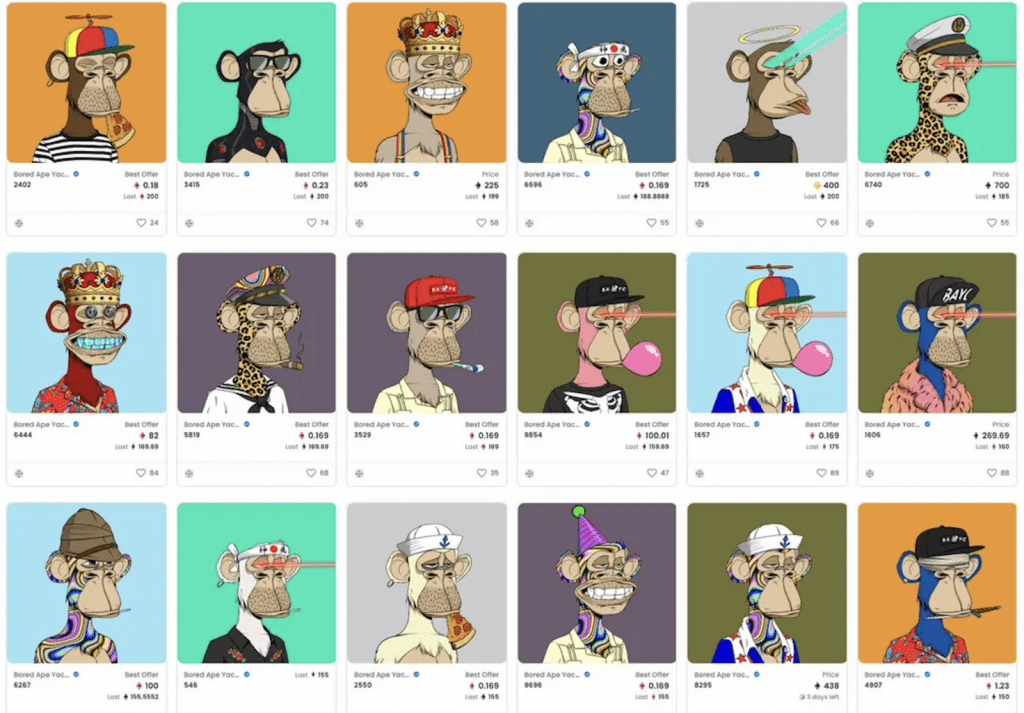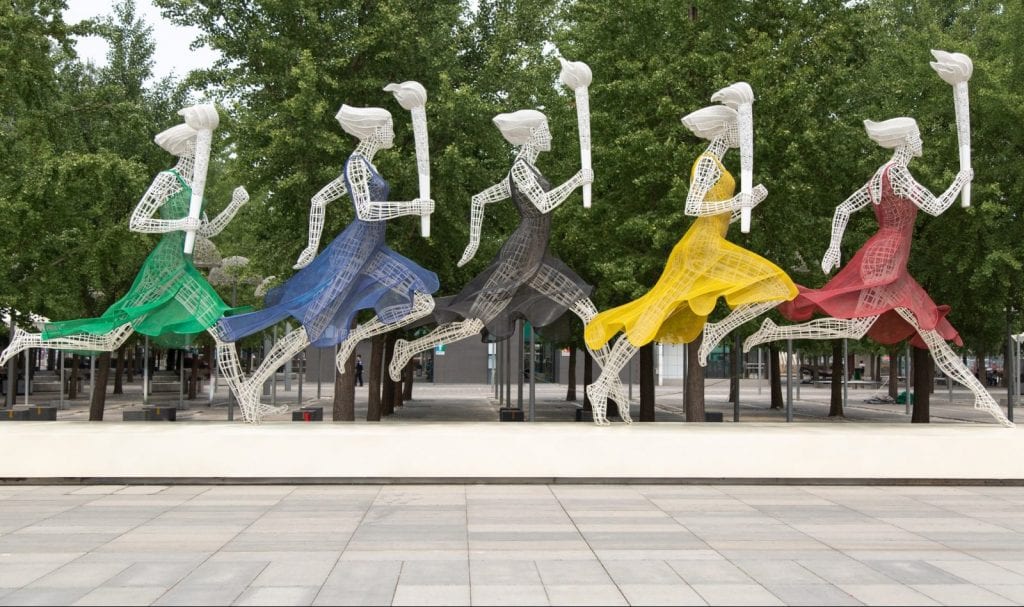In its latest filing in a fight over an allegedly infringing collection of non-fungible tokens, Yuga Labs, the company behind Bored Ape Yacht Club, argues that this is a trademark case – not a defamation case or a copyright-centric matter. While the case may, in fact, center on trademark infringement and false designation of origin claims, the arguments that RR/BAYC-creator Ryder Ripps and Jeremy Cahen make on the copyright front in connection with the counterclaims that they filed last month are interesting, nonetheless, in light of rising questions about the role of AI and could have implications for various types of artworks, including digital art-tied NFTs.
For a bit of background, Ryder Ripps and Cahen lodged a handful of counterclaims against Yuga Labs in December, accusing the Miami-based company of “knowingly and materially misrepresent[ing]” its rights in the BAYC NFTs, while engaging in an “outrageous retaliatory campaign” against them. In addition to setting out intentional – and negligent – infliction of emotional distress, and declaratory judgment of no defamation counterclaims, they make a couple of copyright-focused claims, as well. In particular, Ripps and co. are seeking a declaratory judgment on basis that Yuga does not have valid copyrights in the images tied to the BAYC NFTs.
In particular, Ripps argues that he and Cahen are entitled to a declaration that “there are no copyrights in the BAYC images to the extent that they were not created by a human.” Delving into this assertion, the Ripps and Cahen claim that Yuga Labs sold a series of 10,000 BAYC NFTs each of which is “associated with an image of an anthropomorphized ape cartoon that includes certain traits that are programmatically assembled with a computer algorithm.” Even more specifically, they allege that “Yuga used an automated computer algorithm to produce most if not all BAYC images by assembling traits from each of the essential categories” – the image background, and the “eyes, fur, and mouth[s]” of the apes – and “either none, some, or all of the non-essential categories,” the latter of which refer to the “clothes, earring[s], and hat[s]” that adorn a large array of the apes.
Using this process, Ripps and Cahen contend that “a total of over 1.3 billion permutations were possible.” They claim that “no human was involved in determining which of the 10,000 BAYC images were selected from among the more than 1.3 billion possible permutations aside from designating how many BAYC images would include each trait,” and point to Yuga’s own website, which states that “Each Bored Ape is unique and programmatically generated from over 170 possible traits.”
TLDR: Ryder Ripps and Cahen claim that “except [for] perhaps … a few custom BAYC images that Yuga Labs may have produced with human involvement,” the BAYC images were “generated by an automated computer algorithm where no humans were involved in determining which of the 10,000 images were selected from the more than 1.3 billion possible permutations.”
As a result of the large role of computer generation and the alleged lack of human involvement, they argue that “an actual case or controversy arising under the Copyright Act … exists between [them] and Yuga as to whether the BAYC images are entitled to copyright protection.” Why wouldn’t they be? Well, because courts have uniformly interpreted the Copyright Act as requiring human authorship as a prerequisite to protection of an artwork, thereby, putting works generated or otherwise created by AI or machine learning out of bounds.
With this in mind, and given that Yuga Labs alleged in various takedown notices that it lodged with NFT marketplace websites that Ripps’ RR/BAYC NFTs are “copies of [its] BAYC NFTS and therefore, infringe [its] copyrights in BAYC NFTs,” Ripps alleges that a judgment from the court declaring that the BAYC Images “are not entitled to copyright protection” is warranted even if Yuga Labs did not make copyright infringement claims in the suit at hand.
Yuga Labs is looking to shut-down the copyright (and defamation) declaratory judgment on the basis that Ryder Ripps and Cahen have failed to plead that Yuga Labs “has registered any copyright such that it could bring a copyright infringement suit against [them].” Because it “does not have a registered copyright,” Yuga Labs contends that “there is therefore no imminent threat of a lawsuit for copyright infringement,” and thus, no need for a declaratory judgment. (Note: Yuga Labs does not deny having rights in the images; it merely claims that it has not registered that. That distinction makes a difference from an infringement action perspective, but not from a rights-creation one, as copyright exists from the moment the work is created.)
THE BIGGER PICTURE: Putting the need for a declaratory judgment (or lack thereof) aside, Ripps’ argument about whether the BAYC images are eligible for copyright protection in the first place is an interesting and relevant one that is not limited to the case at hand. In fact, this question – and other copyright-specific inquiries – are coming up in a growing number of cases involving AI or computer-generated artworks, such as those coming by way of platforms like DeviantArt, Midjourney, and Stability AI. (See Anderson, et al., v. Stability AI LTD., et al. and Thaler v. Shira Perlmutter, et al.)
At the same time, another question potentially worth asking in regards to large collections of NFTs tied to computer-generated artworks is whether these assets – by virtue of the sheer number of them – may veer into the territory of securities. “The sale of a one-off NFT that only confers ownership over a piece of art likely would not be considered an offering of securities,” K&L Gates attorneys stated in an NFT-specific note. However, other NFTs – such those that are part of collections in which large numbers of NFTs are minted and sold – could be deemed to be securities if the size of the collection is considered an indicator of fungibility.
The case is Yuga Labs, Inc. v. Ryder Ripps, et al., 2:22-cv-04355 (C.D. Cal.).











